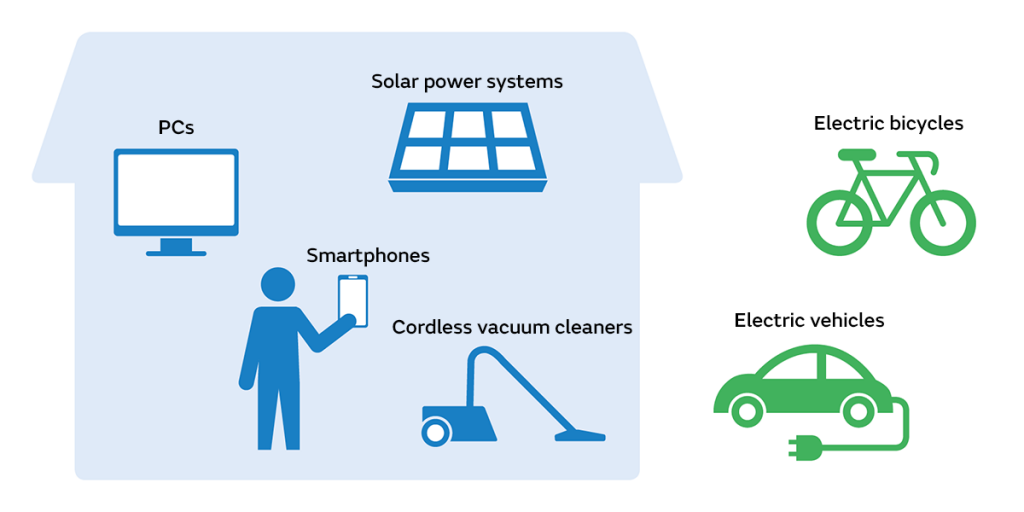There are many tools around us that run on electricity. Taking advantage of the benefit that they are small and powerful, lithium-ion batteries are incorporated into a variety of devices. In particular, products such as smartphones, PCs, and digital cameras became smaller, lighter, and longer lasting after they started using lithium-ion batteries.
Electric vehicles were initially equipped with nickel-metal hydride batteries. However, they now use lithium-ion batteries because of their benefits in being powerful and having low self-discharge and because they do not suffer from the non-user-friendly inability to allow top-up charging like nickel-metal hydride batteries.
Lithium-ion batteries are also used for small home appliances such as cordless vacuum cleaners and irons, vehicles such as electric bicycles and electric motorcycles, and applications such as storing electricity generated during the day using a solar power generation system at home.

In industrial fields, lithium-ion batteries are used to cordlessly operate machines such as robots and drones. There are also a wide range of other industrial fields where lithium-ion batteries are utilized, such as for IoT sensors installed in various locations and special vehicles such as submarines and rockets.